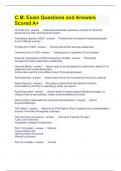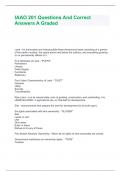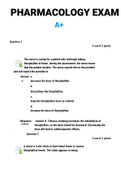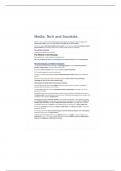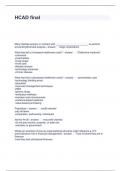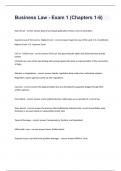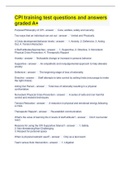Samenvatting
Summary Lawmaking, Politics and Society ALL-IN-ONE
Your ultimate all-in-one LPS bible! All lecture slides with additional discussion-notes, questions and answers, reading summaries and assignments WITH FEEDBACK included! You will really need nothing else for a 7.8! Save a lot of time and effort with this special pack!
[Meer zien]





